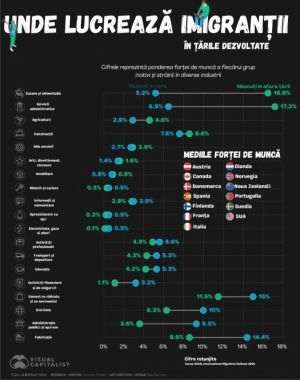Yesterday, the prosecutors searched 49 "Omniasig" branches, on suspicions that the CEO and over other 40 executives forged over 1 million insurance policies, just one day after Peter Hagen, the head of Vienna Insurance Group (VIG), which the insurer belongs to, said that he was not worried by the state of the Romanian insurance market, which has been shaken lately by resounding scandals, such as Astra or Carpatica Asig.
When asked by a journalist from BURSA about his opinion Tuesday, at a conference, on the current state of the insurance market, which has been affected by the economic crisis, but even more so by the frauds in the system, Peter Hagen said: "If we look at the important players on the Romanian market, it is clear that most of them will not default. But if a default were to happen, then we would be faced with a major problem, and that is not because of the Guarantee Fund, but rather because of the perception of the public. If confidence drops, that affects the whole industry".
As it happens, yesterday, the prosecutors of the Criminal Prosecution and the forensics of the High Court of Cassation and Justice have announced that they are conducting investigations in a criminal case which concerns suspicions that several individuals have committed abuse in office and forgery, for which prosecution was initiated, and the case had been drawn up against "Omniasig", a company of the VIG group.
The representatives of "Omniasig" have announced that the only object of the investigations performed by the Prosecutors' Office was the status of the home insurance policies issued by the company in the second half of 2013, in the period when the PAD policies were coming into effect, respectively.
The company has announced that it would fully cooperate and would make available to the authorities any requested information and documents. "We have also begun an internal investigation to clarify this situation", a communiqué issued by Omniasig announces.
Market sources are saying that the investigation concerns the optional insurance policies that are intended to represent an alternative to the mandatory ones.
According to some legislation amendments, customers that had concluded optional insurance policies that cover the risks covered by the PAD policy before August 07th, 2013 were only required to conclude a distinct mandatory PAD policy once the optional insurance policy expired.
After August 7th, concluding an optional insurance policy would no longer exempt the customers from the obligation to conclude a mandatory PAD policy.
Our sources claim that all the insurers, and not just Omniasig, disregarded this stipulation and tried to circumvent it.
It could be that through yesterday's communiqué, "Omniasig" wanted to emphasize the fact that the investigation has no connection to the RCA market, which is facing issues.
Mişu Negriţoiu, the president of the Financial Oversight Authority (ASF), told BURSA, on Friday, that the international institutions - IMF, the European Commission and the World Bank - have expressed their concerns to the ASF concerning the insurance market, especially those concerning the RCA segment.
According to the president of the ASF, the tariffs of the mandatory civil liability policies may increase in the coming period, because the insurers' resources are not enough to cover claims for compensation: "The RCA is part of an unfair competition practice which has cause the tariffs to decrease far below the level of the potential risk. According to the information that we have, the RCA and CASCO market have been distorted".
Among the issues uncovered at the insurers, Mr. Negriţoiu enumerated the fact that the former did not set up reserves and that the risks were not adequately estimated, as well as the existence of liquidity problems.
The president of the ASF said that where there are vulnerabilities, it is possible that the authority will launch an audit of the whole market. Most likely he was referring to the insurance market.
In the case of "Omniasig", the ASF declined providing any more details yesterday, even though its reports prove that out of the audits conducted, it has uncovered irregularities at most insurers.
"The ASF has acknowledged the official communiqué of the Prosecutors' Office of the High Court of Cassation and Justice concerning the searches conducted at an insurance company. The ASF will decide on the appropriate course of action as the Prosecutors' Office provides more details", the ASF told us yesterday.
According to the 2012 report of the Insurance Oversight Commission (the 2013 report is not available), following the audit of "Omniasig", the Insurance Oversight Commission has decided to audit of all the measures taken by the company to resolve the claims in order to lower the number of complaints, the manner of handling and storage of the records for RCA and CASCO claims and the creation/release of the reserves pertaining to such types of claims".
The CSA has drawn up a list of the 15 most frequent irregularities found at most insurers. These include the lack of internal regulations concerning the methodology for calculating all the technical reserves; the inadequate creation of the reserves for validated claims; the inaccurate calculation of the technical reserves (the premium reserve, the mathematical reserve, the reserve for validated claims, the reserve for rejected claims, the benefits and discounts reserve); discrepancies between the technical records and the accounting records of the insurers concerning the gross subscribed premiums, the gross collected premiums, technical reserves, and the amounts of the compensations paid out as part of the claims.
In 2012, Constantin Buzoianu, the president of the Insurance Oversight Commission (CSA), was dismissed following a decision of the Parliament, which uncovered several irregularities. Deputy Adrian Gurzău repeatedly said that after the dismissal of Buzoianu, the CSA should have sent in a detailed activity report, which never came, however.





























































